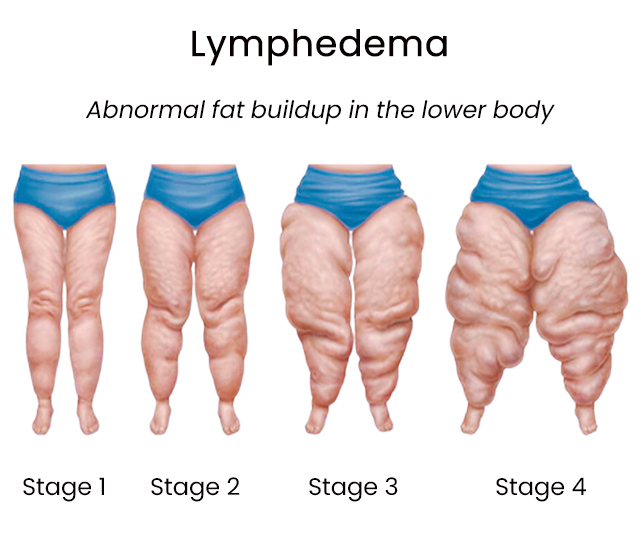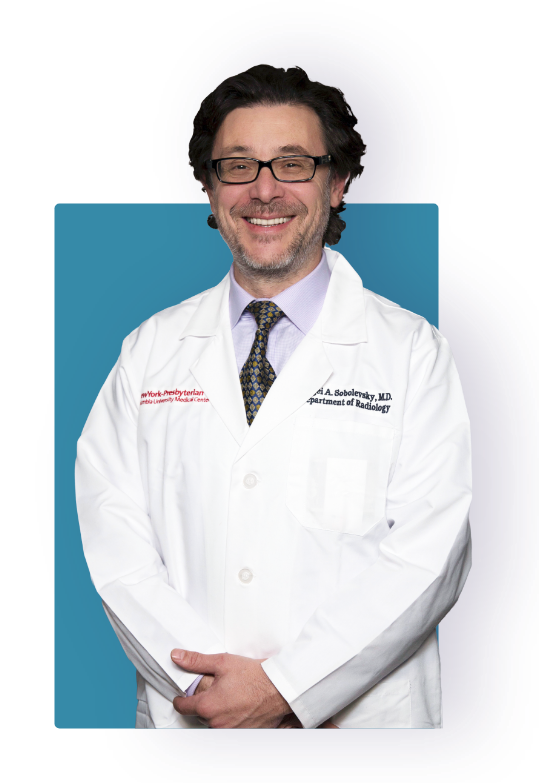Your lymphatic system plays a large role in keeping you healthy. Lymph channels throughout your body transport waste, as well as toxins, from tissues so that your body can dispose of them. The lymphatic system also carries white blood cells to fight infection. When lymph nodes become blocked, you have lymphedema. This lymphatic disfunction results in swelling and pain, usually in your limbs. For effective lymphedema treatments, call the Downtown Vein & Vascular Center in Brooklyn.
What Is Lymphedema and Lymphatic Disfunction?
The lymphatic system is a network of vessels, tissues, organs and glands that drain fluids containing toxins and waste from your tissues through lymph nodes. The vessels in the lymphatic system maintain fluid levels and boost your immunity by transporting white blood cells. Lymphedema is swelling that occurs if your lymphatic system malfunctions.
The swelling caused by an accumulation of protein-rich fluid in your lymphatic system can affect your legs, hands or other parts of your body. Early diagnosis and treatment by a vascular specialist addresses complications, such as sores and infections. Dr. Sergei Sobolevsky, an endovascular specialist at the Downtown Vein & Vascular Center in Brooklyn, treats lymphedema and other vein conditions, including:
Lymphedema Treatment Near Me: Alleviate Pain and Swelling and Reduce the Risks of Infection at the Downtown Vein & Vascular Center
When seeking effective treatment for arm or leg swelling caused by lymphatic system blockage, opt for a board-certified specialist in endovascular medicine with expertise in vascular and interventional radiology. Their expertise and skill can help reduce swelling, prevent complications, and enhance your overall quality of life.
How to Find a Doctor Offering Sclerotherapy in Your Area
If you’re looking for lymphedema doctors nearby, here are a few tips:
- Reach out to friends and family for recommendations.
- Search online for “lymphedema treatment near me,” “lymphedema doctors near me,” and “lymphedema specialist near me.”
- Read reviews of local endovascular specialist online and schedule consultations with them to get to know their practice.
Dr. Sergei Sobolevsky, MD, based at the Downtown Vein & Vascular Center in Brooklyn, specializes in diagnosing and treating lymphatic system disorders. His comprehensive multi-disciplinary approach includes manual lymphatic drainage, compression therapy (using stockings), and advanced computer-guided pneumatic devices for complete decongestive therapy. Dr. Sobolevsky also helps patients manage their condition further through education on self-care, exercise, and preventive measures.

Am I Suffering from Lymphatic Dysfunction?
Lymphatic disfunction reveals itself in different ways, so getting a professional diagnosis by a top vein doctor rules out other vein problems.
Symptoms of lymphedema range from mild to severe and may include:
- Swelling of part or your entire limb, such as an arm or leg
- A sensation of heaviness or tightness in your legs
- A reduced range of motion in the affected leg or arm
- Blisters or sores, followed by recurring infections
- Legs or arms are slightly different sizes
- Fibrosis, a hardening and thickening of the skin
- Inflexible or tight joints
- Discoloration of your skin
- Problems fitting your clothes or jewelry
- A burning or itching sensation in the affected leg or arm
If you notice any of these signs, seek the best lymphedema doctors in NYC. Dr. Sobolevsky performed over 25,000 minimally invasive procedures in his career. This vein doctor recognizes the symptoms so he can provide effective, targeted vein treatments.
★ ★ ★ ★ ★
Fantastic Results
Dr. Sobolevsky treated my varicose veins with great success. I couldn’t be happier with the results. He was professional, kind, and answered all my questions. I highly recommend Dr. Sergei for anyone seeking vein treatment.
What Causes Lymphatic Disfunction?
Doctors classify lymphedema into primary and secondary types. Primary lymphedema is congenital, while secondary lymphedema is caused by damage to the lymphatic system.
Some causes of lymphatic disfunction include:
- Hereditary factors. You’re more at risk of lymphatic dysfunction if a family member suffers from the condition. A rare disease known as Meige disease is the most common form of hereditary lymphedema.
- A leg or arm injury. You can damage the network of lymphatic vessels under your skin if you suffer an injury on your arm or leg. The damaged lymphatic vessels affect the flow of lymphatic fluid in your body and may cause lymphedema.
- Venous diseases. Venous diseases such as deep vein thrombosis and varicose veins cause circulatory problems, which increase the risk of lymphoedema. The damaged veins cause the blood to overflow into the surrounding tissues, overwhelming the lymphatic system responsible for draining excess fluid.
- Standing or sitting for long periods may cause the lymphatic fluid to pool in the vessels, leading to swelling in your legs.
- Heart conditions. A weak heart affects the functions of the lymphatic system. Congestive heart failure increases your risk of lymphedema by reducing the lymphatic transport capacity, causing swelling in your arms or legs.
- Previous surgeries. Some surgical procedures, such as breast cancer surgery and pelvic surgery, may cause lymphatic problems. Surgeries that involve the removal of lymph nodes can cause lymphedema.
- Radiation therapy. Treatment using radiation therapy may damage your lymphatic system by destroying lymphatic vessels and lymph nodes.
- Infections such as cellulitis affect the tissues around the lymphatic system, including the vessels or lymph nodes, causing poor drainage of lymphatic fluid.
- Being obese or overweight. Excess fat in your body pushes against the lymph nodes and vessels, increasing the risk of damage to your lymphatic system.
- Some tumors block the flow of lymphatic fluid in the lymphatic system, causing swelling.
With state-of-the-art equipment and modern technology at the Brooklyn lymphedema clinic, your experienced vein doctor accurately diagnoses the underlying cause of your lymphatic dysfunction. Your individualized treatment plan is based on your diagnosis.
How Is Lymphedema Treated?
Your vascular doctor assesses the severity of your symptoms, performing diagnostic tests — such as a Doppler ultrasound, MRI or CT scan — as necessary to rule out other medical issues.
A multi-disciplinary approach to lymphedema treatment may include:
- Your doctor may prescribe antibiotics to treat skin infections, such as cellulitis.
- Lymphedema therapy. Specialized lymphedema therapy may include exercises to promote circulation in the lymphatic system, manual lymphatic drainage, compression therapy using stockings or highly technological computer-guided pneumatic devices capable of providing complete decongestive therapy.
If you wondered how do you treat lymphedema in the legs, you can find answers with Dr. Sobolevsky and his vein treatment team at the Downtown Vein & Vascular Center. This vascular specialist serves all of Brooklyn and greater New York City.

I am Dr. Sergei Sobolevsky, a leading specialist in endovascular medicine. Having performed over 25,000 procedures throughout my career, I bring decades of experience in vascular and interventional radiology to my practice. I obtained my Doctor of Medicine (MD) degree from the University of Colorado School of Medicine in 1997 and completed my specialty clinical training in vascular and interventional radiology at Harvard University.
My dedication to excellence in patient care has been recognized through accolades such as being named a Castle Connolly Top Doctor and inclusion in the Top Doctors New York Metro Area lists for 2020, 2021, 2022, and 2023. With licenses in multiple states, I have also shared my expertise through presentations at various institutions in the US and abroad.
More About Dr. SobolevskyDowntown Vein Treatment Center
480 Court Street, Ste 101
Brooklyn, NY 11231
(718) 787-5559


